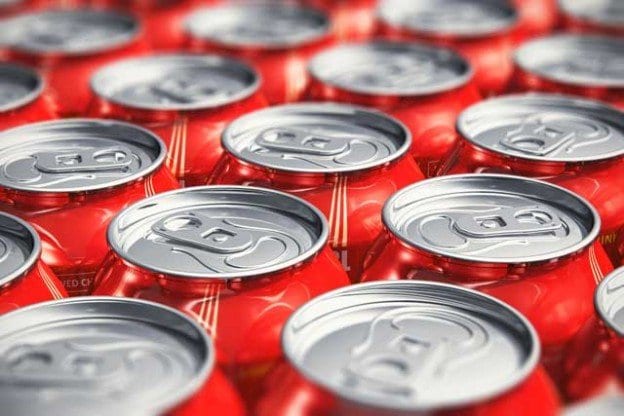Soft drinks and diabetes. What effect do soft drinks have on diabetes? If recent reports are accurate there may be more to the potential link than you may have thought – and for some interesting reasons.
Part of the reason this may be true is that soft drinks actually deplete nutrients from your body and have no ability to reintroduce those nutrients. The sugar content in one soda is often in excess of recommendations for total sugar consumption per day.
Sugar
When large quantities of simple sugars are introduced to your body, “The pancreas is called upon to produce and release insulin, a hormone that empties the sugar in your blood stream into all the tissues and cells for usage. The result of overindulging in simple sugar is raised insulin levels. Raised blood sugar levels beyond the norm can lead to depression of the immune system, which in turn weakens your ability to fight disease,” according to the Yahoo Health report.
What blood sugar can’t be removed by the introduction of insulin is often converted to fat and stored in the body presenting conditions that can lead to Type 2 diabetes.
Drinks such as juice, tea and water can replenish the body with nutrition while soft drinks tend to provide an opposite response.
Carbonation
The fizzy bubbles that differentiate soft drinks from other beverages can actually serve to reduce your body’s supply of calcium. The long-term use of soft drinks may influence the development of bone conditions such as osteoporosis.
Caffeine
The majority of soft drinks contain this stimulant. This can also decrease the body’s blood calcium reserves, but it also adds a false energy boost that can contribute to stress. Stress in turn can contribute to weight gain. Weight gain can contribute to the development of diabetes.
Diet Soft Drinks
Interestingly the Yahoo Health report also spoke of the negative impact of diet soda. Most look at diet pop as a pleasure without guilt because it does not contain sugar and is not thought of as a contributor to weight gain, yet apparently this is not the case.
“One study discovered that drinking one or more soft drinks a day — and it didn’t matter whether it was diet or regular — led to a 30% greater chance of weight gain around the belly,”
according to Yahoo Health.
The report helps provide the reason behind the potential weight gain,
“Aspartame, commonly known as nutrasweet, is a chemical that stimulates the brain to think the food is sweet. It breaks down into acpartic acid, phenylalanine, and methanol at a temperature of 86 degrees. (Remember, your stomach is somewhere around 98 degrees.) An article put out by the University of Texas found that aspartame has been linked to obesity. The process of stimulating the brain causes more cravings for sweets and leads to carbohydrate loading.”
Conclusion
In other words, it may be possible to drink a diet soda and feel the need to consume products high in carbohydrates. This can be a potential disaster for a diabetic.
There may be better answers for satisfying a sweet tooth in the natural substitute Stevia, but in the meantime, a reduction in the total amount of soft drinks you consume may be a wise step toward better overall health.
